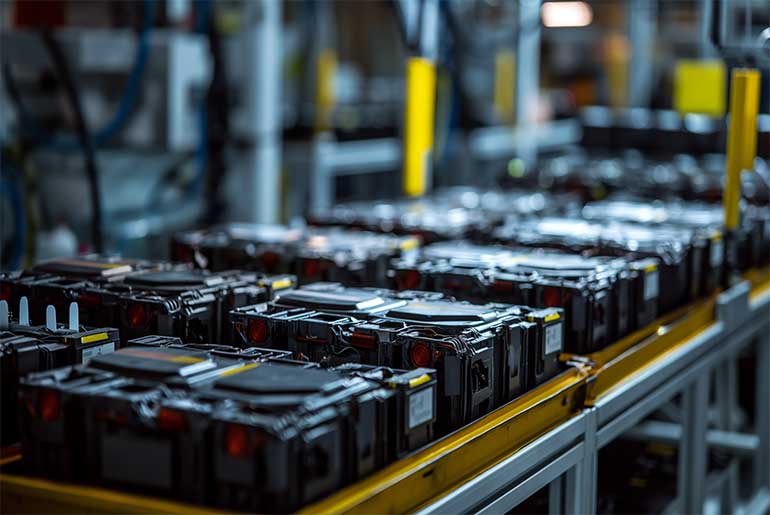Reliance Industries Ltd. (RIL) is also planning to open its highly anticipated battery Gigafactory in Jamnagar, Gujarat, by the second half of 2026. This is a key initiative to be driven by the RIL Chairman Mukesh Ambani and will be one of the pillars in the transition of India to green energy with battery production and energy storage solutions.
The Gigafactory will have an annual capacity of 30 GWh, making it one of the largest battery manufacturing plants in India. First, the plant will focus on the assembly of Battery Energy Storage Systems (BESS) that would serve utility-scale, residential, commercial, and mobility markets. In the further development of the facility, cell production and battery chemical production will be involved, which will make Reliance a very significant stakeholder in the solutions of high energy.
The government-sponsored production-related incentive (PLI) scheme on advanced chemistry cell battery manufacturing supports the entry of Reliance into battery manufacturing. Under this scheme the company has already acquired 5 Gwh capacity and it is bidding to acquire 10 Gwh more. This business strategy will help Reliance quickly increase the volume of production to satisfy the local and international demand.
To be ahead of the curve, Reliance is also developing sodium-ion battery technology and is planning to industrialize production of sodium-ion cells at a megawatt scale by next year. This program demonstrates the concern of the company in the field of innovation and energy storage sustainability.
The Gigafactory will use the experience of subsidiaries Lithium Werks and Faradion to produce next-generation batteries with a safety, stability, and cost-focused approach. With an innovative approach to embracing the use of high-tech electrochemical technologies, Reliance hopes to develop batteries that serve a variety of energy storage applications, including stationary and electric mobility applications.



